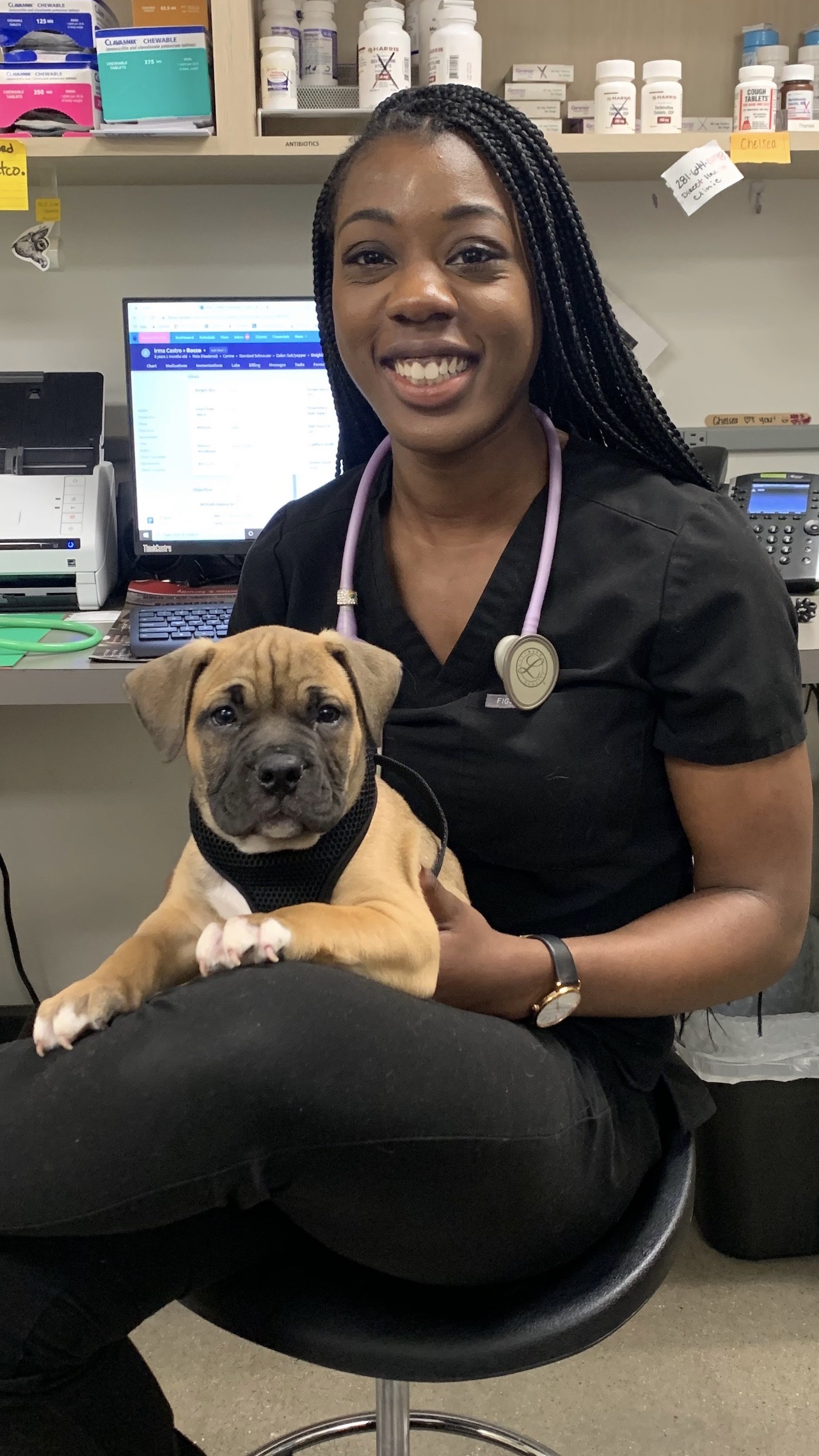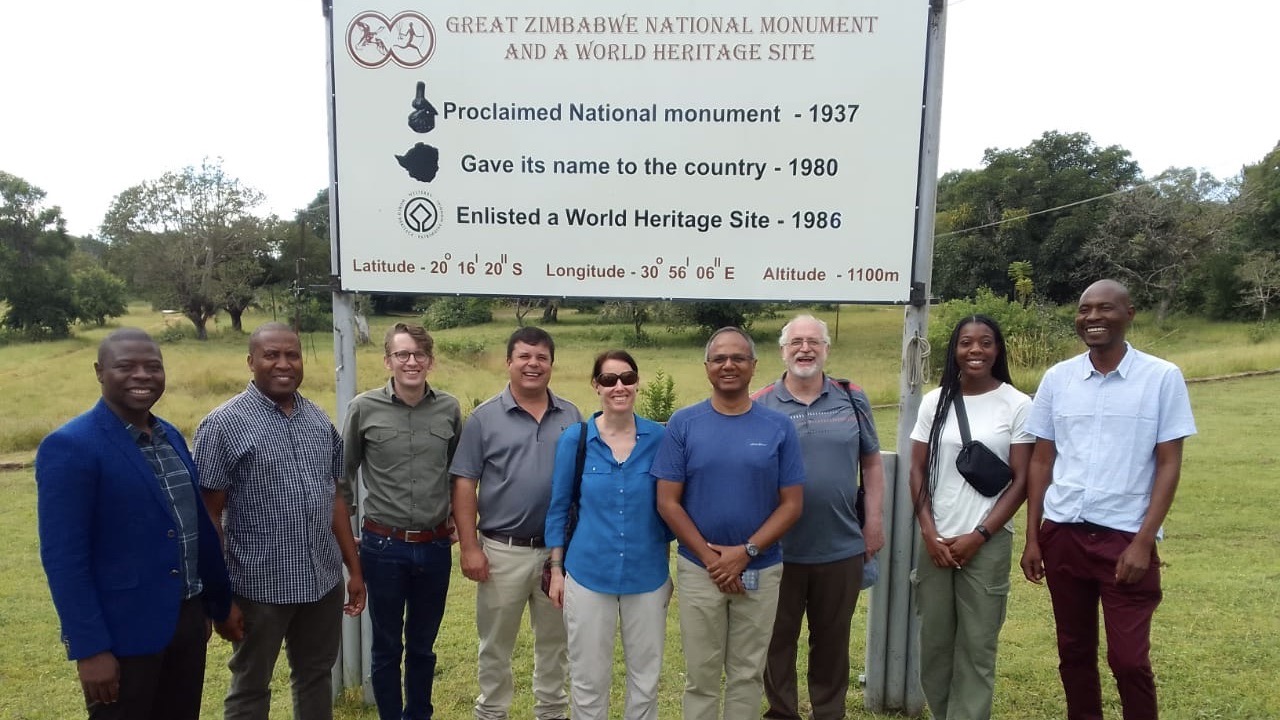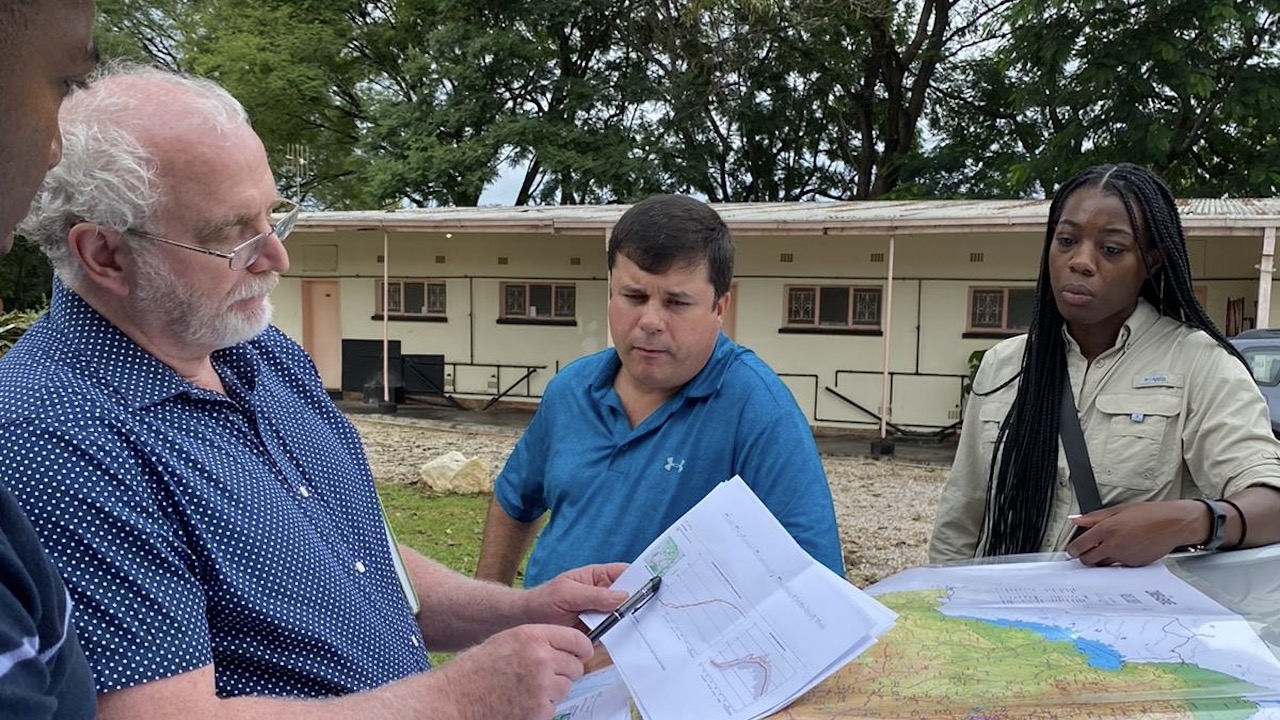content body
For Dr. Shaina Craige, a 2018 alumna of Auburn University’s College of Veterinary Medicine, positive, proactive change in the world of veterinary and human health is more than a wish. It’s a passion that’s driven her work for the past six years.
As an international government affairs advisor for Elanco, a global company providing animal health products and services, Craige is particularly interested in helping shape public policy that’s based on sound science.
Her goal: to help achieve healthy outcomes for people, animals and the planet.
“When you look at animal health, human health and environmental health, they are all linked or interconnected in some way, almost like a circle,” Craige said. “That’s how I define One Health, and in every aspect of my work every day, I’m engaged in a One Health activity or project.”

Auburn CVM alumna Shaina Craige practicing as a relief veterinarian in Houston.
The Auburn influence
Craige’s advocacy for One Health and the veterinary profession has its roots in her experience at Auburn.
An Alabama native, she came to the university with a background in agriculture and a bachelor's in animal science from Southern University and A&M College in Louisiana.
Through a dual degree program, Craige earned a doctorate in veterinary medicine from Auburn and a Master of Public Health (MPH) from the University of Minnesota.
“I just didn’t know what career opportunities would be out there, and it wasn’t until I got to Auburn and the MPH program that my awareness about potential career opportunities widened out,” Craige said.
What followed has been a diverse career that’s taken her from Africa to the island of Hispaniola: In addition to her job at Elanco, she has held positions as a practicing veterinarian, a science and technology policy fellow for the American Association for the Advancement of Science (AAAS) and a livestock advisor providing technical support and advisory services to the Bureau for Humanitarian Assistance of the U.S. Agency for International Development (USAID).
“I feel like I have done quite a bit in the six years I’ve been out of school,” Craige said. “I think it’s important for anyone who’s in vet school or interested in being a veterinarian to know there are a lot of different opportunities out there. That’s one of the things I love about veterinary medicine: There’s so much you can do with your degree.”
Taking a nontraditional career path
Craige decided to take her career in new directions while she was a small animal veterinarian in Houston. She volunteered for the policy office of a county public health department.
“That’s when I realized that public policy was the route I wanted to take,” she said. “I realized that policy affects veterinarians every day, but we are not very represented in the policy process.”

Auburn CVM alumna Shaina Craige working as a livestock advisor during a crop tour in Zimbabwe with FEWS NET, USDA, NASA and USGS colleagues.
From there, Craige accepted an AAAS fellowship in Washington, D.C., which placed her at USAID. And that experience led to the technical support and advisory position within the agency.
In all, she spent three-and-a-half years with USAID, working internationally to assist in crises such as the Horn of Africa drought and an African swine fever outbreak in Haiti and the Dominican Republic.
“Anything that could impact a household's food security and livelihood, that was what we worked on,” Craige said. “And from my veterinarian background, my work was from the livestock perspective.”
Pushing for positive change
Craige again took her career in new directions when she joined Elanco in January. At Elanco, she continues to push for positive change — especially change that’s informed by solid science.
In today’s polarized political climate, Craige said public perception can sweep aside science-based answers to important issues such as antimicrobial resistance.
Antimicrobials, including antibiotics, are medicines that prevent and treat infectious diseases in people, animals and plants. Over time, microbes and parasites that cause the diseases can become resistant to the medicines. And because of that, disease can spread, and infections can become more difficult to treat.
“As veterinarians, we are not always represented in policy processes that could have profound impacts on our profession and animal health...it’s our area to really educate people and policymakers on these issues.”
Craige said she’s spent much of her time recently working with experts and leaders who are trying to figure out how best to combat antimicrobial resistance. Earlier this month, she went to New York to attend the Multi-stakeholder Hearing on Antimicrobial Resistance. And she’s planning to go to Paris soon for the 91st General Session of the World Assembly of Delegates with the World Organisation for Animal Health (WOAH).
As a veterinarian, Craige believes she has a responsibility to educate policy makers about such complex issues of national and international concern.
“As veterinarians, we are not always represented in policy processes that could have profound impacts on our profession and animal health,” she said. “As scientists, as veterinarians, it’s our area to really educate people and policymakers on these issues.”





